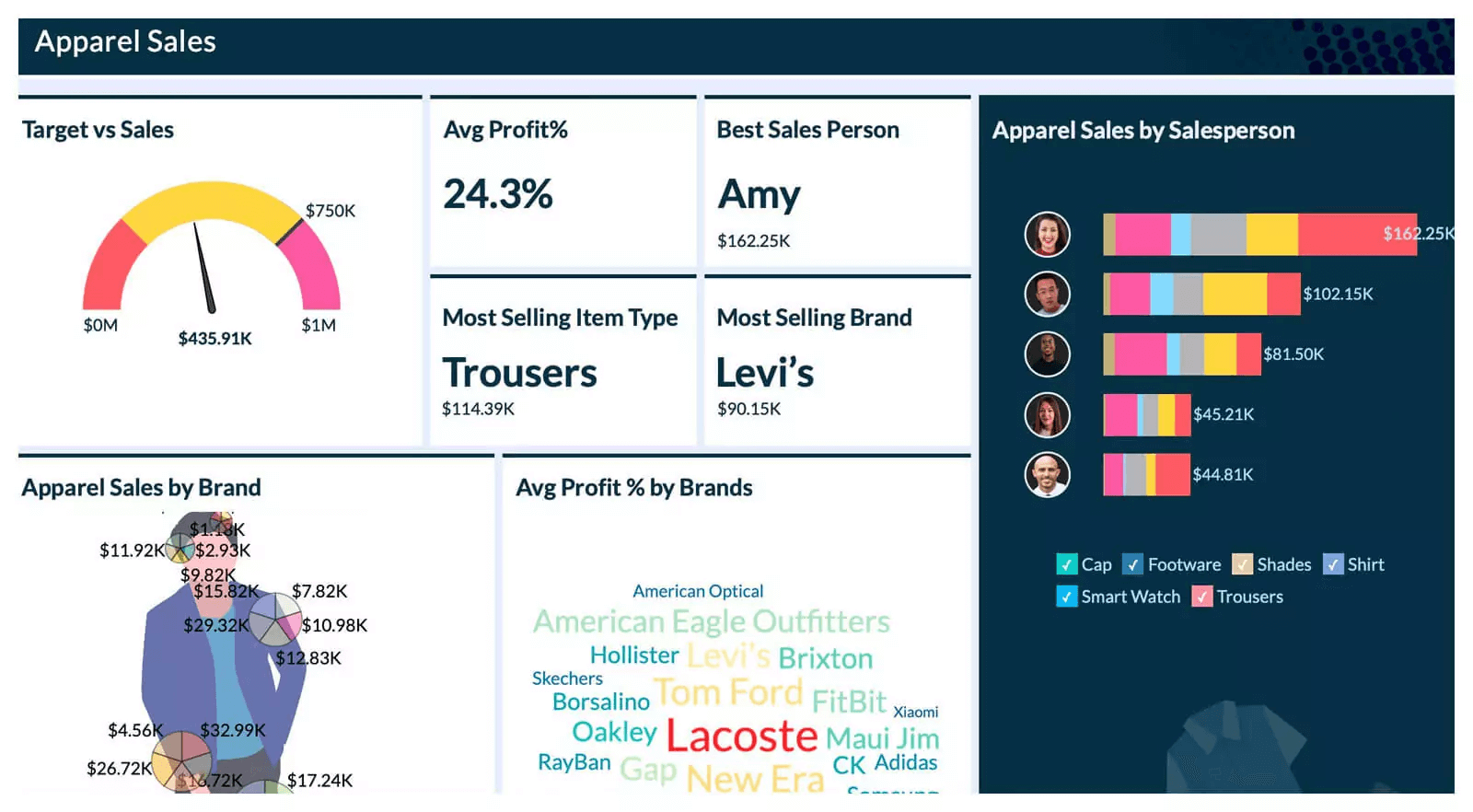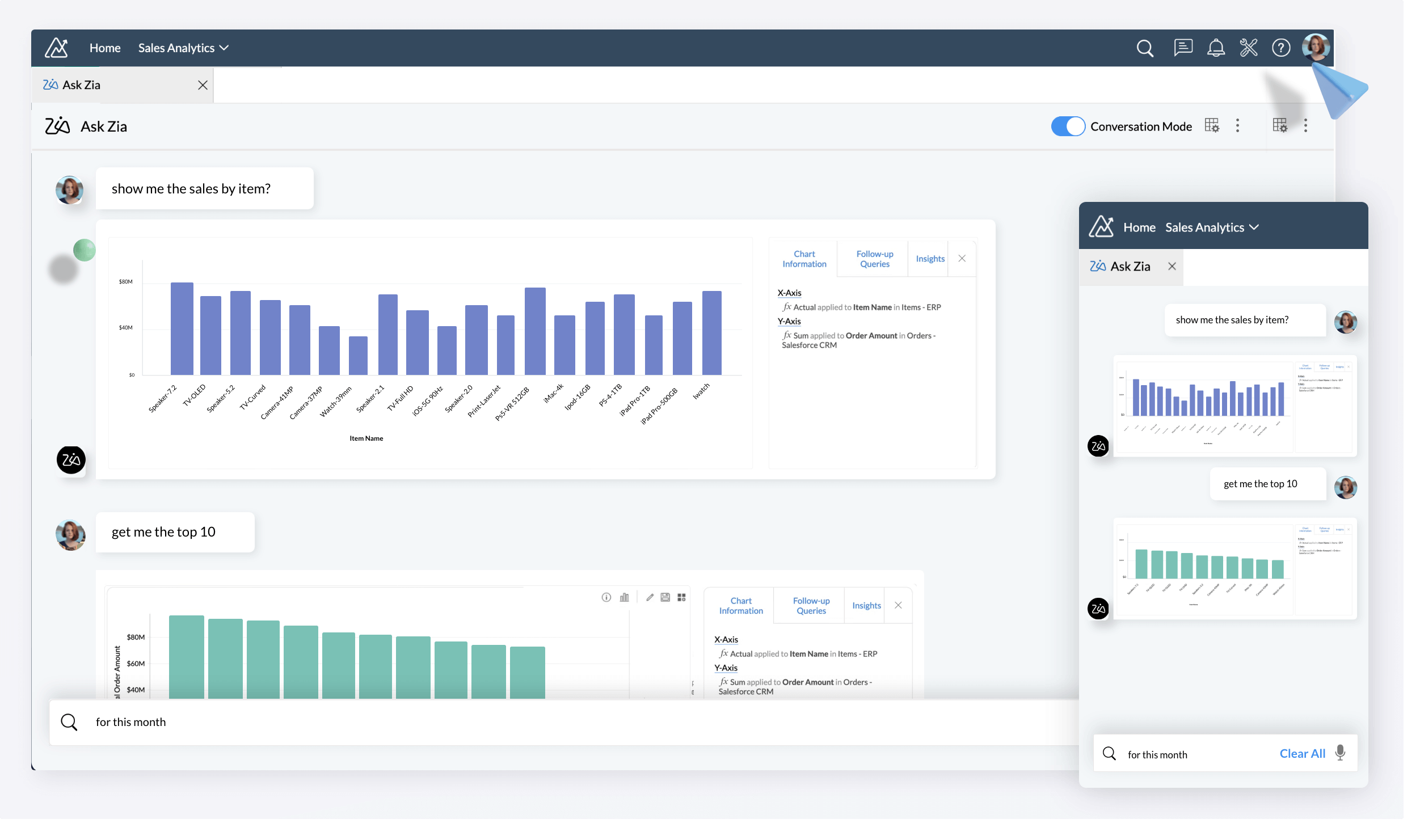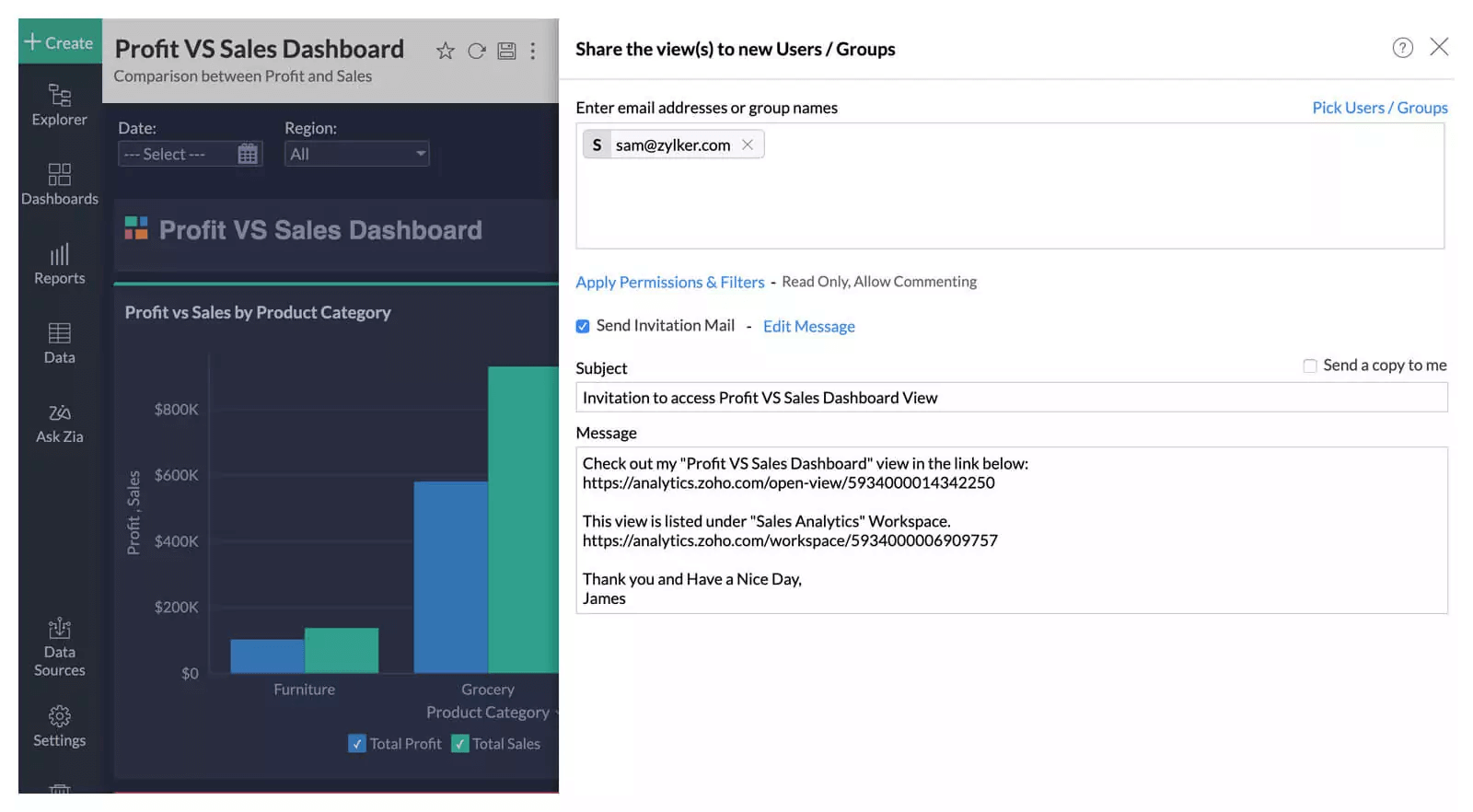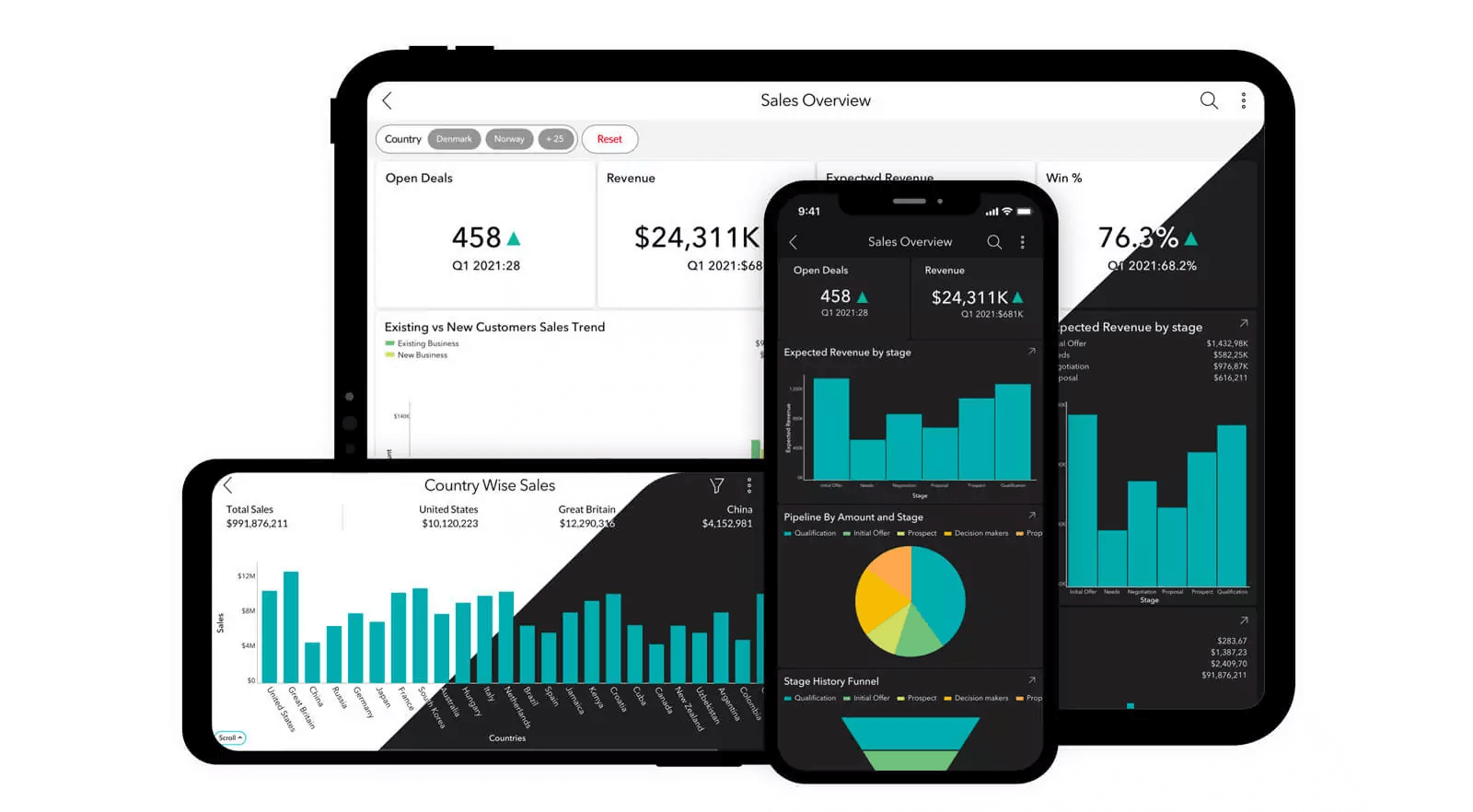Trusted by Great Brands
- Icon
- Icon
- Icon
- Icon
- Icon
- Icon
- Icon
- Icon
- Icon
- Icon
Features of Self service BI Tool
Gather data across sources
Data can be anywhere—in the form of files, web feed URLs, local and cloud databases, business apps, and more. With our business intelligence software, you can connect with data from 250+ data sources.

Discover insights via visual analysis
Visualize data in different ways using a plethora of elements —chart types, color palettes, widgets, themes, fonts etc. Uncover hidden insights through intuitive and interactive data visualizations.
Augment analytics with AI
Leverage AI-powered capabilities like conversational analytics, automated insights, predictive analytics, and scenario analysis to gather actionable insights in quick time. Use our ChatGPT integration and cognitive analytics to enhance analytics.


Share & collaborate with peers
Share reports/dashboards within your team, organization or with external stakeholders easily and collaborate over contextual comment threads/conversations. Manage the integrity and security of your data with fine-grained access control.
Access BI on the go
Stay up-to-date with insights in real-time from wherever you are, using the device of your choice. Leverage our powerful mobile BI apps to easily access reports and dashboards.

Self-Service BI Explained: Definition, Importance, and Tools
What is self service BI?
Self-service BI (Business Intelligence) is a modern approach that empowers businesses to access, analyze, and visualize data without relying on data teams or IT support. It enables business users to explore data, uncover insights, and build dashboards using intuitive, no-code interfaces. By democratizing analytics across all levels of the organization, it helps foster a truly deep and widespread data-driven culture.
Importance of Self service BI
Self-service BI is imperative in the modern business era, where a data-driven culture has become the norm. It empowers every department within an organization to make informed decisions in real time. As a result, it drives increased productivity, enhanced agility, and a culture that fosters continuous improvement.
What are self-service BI Tools?
Self-service BI tools are software platforms that enable users to perform data analysis, build reports, and create dashboards independently. These tools offer user-friendly features such as drag-and-drop interfaces, natural language querying, AI-powered insights, and seamless data integration from various sources. With a proven BI solution like Zoho Analytics, users can easily blend and analyze data, uncover trends, and securely share insights with their peers.
Business App Connectors
View moreZoho CRM
Learn moreSalesforce CRM
Learn moreHubSpot CRM
Learn moreGoogle Analytics
Learn moreLinkedIn Ads
Learn moreZoho Books
Learn moreZoho Desk
Learn moreZendesk
Learn more
Try self service BI software today and see how users can work with complex data easily.
To understand more about our BI software, Sign up for a 15-day free trial and explore our powerful, self-service BI capabilities.
Sign up for freeFrequently Asked Questions
What is the difference between self-service BI and traditional BI?
Traditional BI heavily relies on data teams or IT support to generate analytical insights. In contrast, self-service BI empowers users to access, analyze, explore, and share data independently—without relying on others.
What are the best practices for self-service BI?
Promote a data-first culture that encourages all teams to make data-driven decisionsStandardize metrics and dashboards to ensure a unified, consistent view across teamsInvest in training to equip users with foundational data literacy and BI tool proficiencySet up data governance to ensure data accuracy, consistency, and secure access controlMonitor BI adoption and usage to continuously optimize the user experience
To maximize the utility of a self-service BI solution, organizations should:
What are the benefits of self-service BI?
- Faster decision-making
- Greater data democratization
- Improved collaboration with peers
- Increased productivity
- Enhanced agility
The key benefits of self-service BI include:
How to choose the best self-service BI tool for my team?
Extensive data integration with files, feeds, local/cloud databases, and business applicationsAI-powered data preparation to cleanse, transform, and enrich data for deeper analysisUser-friendly interface that enables a no-code approach to data analysisAdvanced AI/ML features to uncover hidden insights at scaleSecure sharing and collaboration to communicate insights with peers easilyScalability to support your organization’s growing data and business needs
Look for a solution like Zoho Analytics that balances powerful analytics with ease of use. Some of the notable aspects of this solution include:
How to determine whether a BI platform is actually “self-service”?
- Perform data integration and preparation with zero coding
- Create insightful data visualizations using drag-and-drop or natural language queries
- Access insights on demand, anytime and anywhere
- Collaborate and share insights with peers effortlessly
- Customize reporting views and KPIs to meet their unique requirements
A true self-service BI platform enables non-technical business users to:









